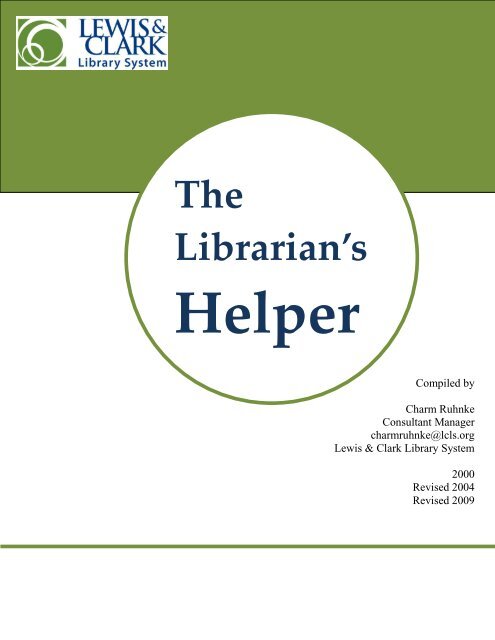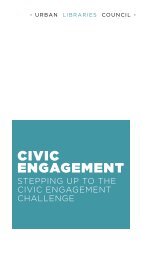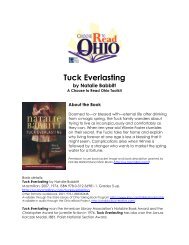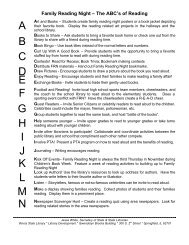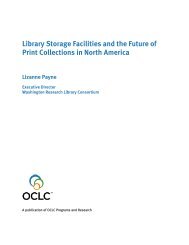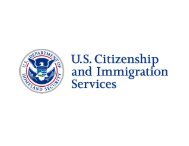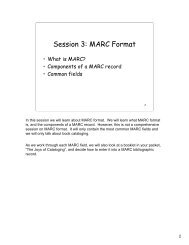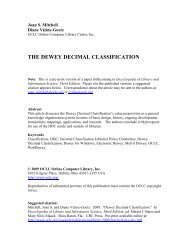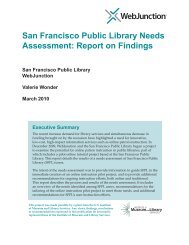Librarian's Helper - Lewis & Clark Library System
Librarian's Helper - Lewis & Clark Library System
Librarian's Helper - Lewis & Clark Library System
You also want an ePaper? Increase the reach of your titles
YUMPU automatically turns print PDFs into web optimized ePapers that Google loves.
TheLibrarian’s<strong>Helper</strong>Compiled byCharm RuhnkeConsultant Managercharmruhnke@lcls.org<strong>Lewis</strong> & <strong>Clark</strong> <strong>Library</strong> <strong>System</strong>2000Revised 2004Revised 2009
Page3Tax Caps (PTEL) - 35 ILCS 200/18-185 et seq ........................................................................................................... 25Prevailing Wage - 820 ILCS 130 ................................................................................................................................ 26LAWS IMPACTING LIBRARIES ............................................................................................................................................... 27PERSONNEL ISSUES ........................................................................................................................................................... 29Introduction ............................................................................................................................................................. 29Training and Continuing Education ......................................................................................................................... 29Hiring ....................................................................................................................................................................... 29New Hire Reporting ................................................................................................................................................. 30Employment Eligibility Verification, I-9 forms ......................................................................................................... 30Salary ....................................................................................................................................................................... 30Payroll ...................................................................................................................................................................... 30Firing ........................................................................................................................................................................ 31LIBRARY SERVICES ............................................................................................................................................................. 32Introduction ............................................................................................................................................................. 32Circulation ................................................................................................................................................................ 32Reference ................................................................................................................................................................. 32Interlibrary Loan ...................................................................................................................................................... 32Cataloging ................................................................................................................................................................ 33Children’s Services ................................................................................................................................................... 33Programming ........................................................................................................................................................... 33POLICIES & PROCEDURES ................................................................................................................................................... 34GRANT INFORMATION ....................................................................................................................................................... 35Per Capita ................................................................................................................................................................ 35Equalization ............................................................................................................................................................. 35LSTA ......................................................................................................................................................................... 35TRAINING AND CONTINUING EDUCATION .............................................................................................................................. 36APPENDIX A: MUNICIPAL LIBRARY CALENDAR ....................................................................................................................... 37APPENDIX B: LIBRARY DISTRICT ADMINISTRATIVE CALENDAR.................................................................................................... 40APPENDIX C: OATH OF OFFICE ............................................................................................................................................ 43APPENDIX D: WHAT ILLINOIS TAX FUND CAN BE USED TO PAY WHAT EXPENSES? ........................................................................... 44APPENDIX E: POLICY LIST FOR PUBLIC LIBRARIES ...................................................................................................................... 47
Page4INTRODUCTIONThe Librarian’s Handbook was created to provide an overview of public libraryadministration for librarians and library boards. The handbook was not and is not intended toprovide in-depth answers concerning library administrative issues. Rather, it is intended toprovide general, basic information on topics effecting the administration of a public library. It isa quick guide for library directors new to their library. The sections were designed to mirror thebroad administrative duties of the librarian and the library board.Thank you to the librarians who assisted in developing this document: ElaineSteingrubey and Joyce Reid for suggesting the handbook’s creation; the 2004 SPMLI group forits 2004 revision; and the LCLS 2007-08 freshman class of public library directors for the 2009revision.In Illinois, the Illinois State <strong>Library</strong> and the nine Regional <strong>Library</strong> <strong>System</strong>s are available toassist, encourage, and guide the more than 3,000 academic, public, school, and special librarieswithin the state. Please do not hesitate to contact the <strong>Lewis</strong> & <strong>Clark</strong> <strong>Library</strong> <strong>System</strong> or theIllinois State <strong>Library</strong> with any questions you might have. We love to hear from you.
Page5WHAT IS AN ILLINOIS PUBLIC LIBRARY?A public library is a tax-supported library for the use of residents of that locale. A libraryoffers a variety of services to its residents ranging from circulation of books to programspromoting children’s reading and answering reference questions to interlibrary loan anddelivering material to home bound residents.The State of Illinois has a variety of public library types. A local library may be amunicipal (city, village, and town) library, a township library, a county library, or a districtlibrary. Municipal and District Libraries are the most common public libraries in Illinois.Local libraries are supported almost totally by local property taxes. Under Illinois Law, alibrary board can request a tax rate of .15% (.0015) be assessed against the property within thelibrary’s service area. This fund is referred to as the General Fund, the <strong>Library</strong> Fund or theCorporate Fund. Libraries may tax at a higher rate for the General Fund if the residents haveapproved a higher ceiling. Or if a home-rule community, the tax request may be higher than the.15%. In addition to the General Fund, library boards may also tax to pay for Social Security,Medicare, Illinois Municipal Retirement Fund, Building & Maintenance costs, some Insurancecosts, and to pay for the annual audit. The levying of taxes is an additional responsibility fortrustees of a library district as the board not only sets the budget but also adopts the tax levy.Libraries may also be eligible to receive an annual per capita grant from the Illinois State<strong>Library</strong>. The actual per capita amount is determined by the amount of money in the Secretaryof State’s funding with $1.25 per person being the current maximum amount. Many librariesare also given donations, endowments, and gifts or bequests. These funds are considered softmoney, as the actual amount widely fluctuates from year to year.Under Illinois law, the powers, responsibilities and duties of the <strong>Library</strong> Board ofTrustees are nearly identical for each type of public library. These responsibilities include butare not limited to owning property, creating policy, and hiring the librarian.In Illinois, a Municipal Public <strong>Library</strong> is a nearly independent unit of local government. Itsboundaries are determined by the boundaries of the city, village, town, or township. The Public<strong>Library</strong> Board of Trustees has complete control over the library’s administration, including butnot limited to the staff and revenue. A municipal library board adopts the budget, but theircorporate authority actually levies the library’s taxes based on this adopted budget.In Illinois, a Public <strong>Library</strong> District is an independent special purpose unit of localgovernment. Its boundaries are determined by voters either via election, petition, oragreement with a Public <strong>Library</strong> District Board of Trustees' ordinance.Illinois citizens living outside of a public library service area are considered non-residentsin terms of library service. In order to have full library service, they may request to be annexedto the library district or municipality. In reality, non-residents usually chose to purchase theirlibrary service on an as-needed basis. Under Illinois law, the library board may choose to offer a
Page6library card for purchase by a non-resident; this card is valid for reciprocal borrowing at Illinoispublic libraries. The fee must be at least equal to the cost paid by residents of that particularlocal library. See 75 ILCS 5/4-7(12) and 75 ILCS 16/30-55.60 for more details on the nonresidentcards.DEFINITION OF TERMSThese definitions are provided to better understand libraries. The librarian shouldreview the definitions given in the Illinois Compiled Statutes (ILCS) and may wish to refer to alegal terminology dictionary.Appropriation—Public funds set aside for a specific purpose. An appropriation amount gives thelibrary board the authority to spend the money up to a set amount. The Appropriation includesall revenue streams, not just the tax revenue.Appropriation Ordinance—Document that gives the corporate authority (municipality,townships, library district board) the authority to spend the money that will be legally received.Assessed Valuation—Percentage of the market value which the County Assessor places onproperty for tax purposes. It includes land and buildings.Budgeting—Development of a financial plan for the coordination of revenue and expenditures.Certification—Development of a document that attests to the accuracy and truth of aresolution. All filed ordinances must be accompanied by the board secretary’s certification.Corporate Authority—Governing body with responsibilities for policy setting, ability to levytaxes, etc. Examples of corporate authorities are the municipal councils, county boards,township board, and library district boards.Equalization—Result of the Assessed Valuation being multiplied by the Multiplier.Equalization Factor—Number that is used to make property assessments uniform throughoutthe state. Corporate authorities are assigned multipliers by the Illinois Department of Revenue.Also known as the Multiplier.Equalized Assessed Valuation (EAV)—Property value or worth used to determine the property’spayable taxes. In broad terms, the EAV is 1/3 of the market value of the property, minus anyproperty exemptions such as homestead or senior citizens. The EAV is multiplied by the tax rateto determine the property’s actual tax.Expenditure—Expenses involved in running the library (salaries and wages, library materials,utilities, etc.)Levy Ordinance—Document that specifies the amount of tax money the municipality (or a
Page7library district) wishes/desires to collect. The Levy ordinance is adopted by the corporateauthority.Multiplier-- Number that is used to make property assessments uniform throughout the state.Corporate authorities are assigned multipliers by the Illinois Department of Revenue. Alsoknown as the Equalization FactorMunicipality—City, village or incorporated town.Ordinance—Law of a municipal government or taxing entity, such as a library district.Referendum—Submission of a proposed public measure to a direct popular vote. An itemplaced on an election ballot for adoption by local voters.Resolution—Formal statement of a decision or want for action by the library board.Revenue—<strong>Library</strong>'s income from all sources (tax levies, fines, fees, gifts, etc.). Also called therevenue stream.Tax Levy—Actual amount of property tax dollars that the library board determines is needed torun the library.Tax Rate—Percentage that is multiplied with the Equalized Assessed Valuation to determine thepayable tax for a property. Tax rates have statutory ceilings; these maximums vary according tothe type of tax. For instance, the library general fund tax has a ceiling of .15% unless increasedby local voters or home-rule communities. When the tax rate is multiplied against the EAV, therate is expressed as .0015.Tax Cap—Property Tax Extension Limitation (PTEL). The PTEL was enacted in 1991 to providetax relief from rising property taxes in non-home rule taxing districts. The PTEL is established ona countywide basis, voted on by the voters of the county. Once a tax cap is in place, increases inproperty tax extensions are limited to 1) 5% or 2) the increase in the consumer price index,whichever is lower. Contact the Illinois Department of Revenue for more information.
Page8THE LIBRARIANS’ RESPONSIBILITIES AND CONCERNSIntroductionThe librarian is the CEO of the library, answerable to the board, responsive to the staff,understanding with the public. The librarian is expected to know everything about running alibrary, to stay ahead of trends, to be a people person 24 hours a day, have a law degree, workevery weekend, and be paid pennies a day. The librarian who can do all of this has yet to bediscovered!However, with patience, help, and experience, librarians learn how to administer apublic library. Just remember help is available by talking with the <strong>System</strong> consultants,neighboring librarians, and the State <strong>Library</strong> staff. An astonishingly timeless book to read isEssentials of <strong>Library</strong> Administration, second edition c1912. This book, whichever edition is read,reminds us that the more things change, the more they stay the same! Another wonderfulresource is Directors ASK! a <strong>Library</strong>U module posted in WebJunction Illinois’ course catalog at:http://il.webjunction.org/catalogOversees library servicesThe librarian ensures that all of the library’s services are offered to the public in aconvenient, equal, and regular manner. The librarian may and should recommend to the boardany changes in the library’s services.<strong>Library</strong> services traditionally include circulating library material, collection development,interlibrary loan, readers advisory, cataloging, answering reference questions, presentingchildren’s and other programming, offering computer and Internet access, and delivery tohomebound patrons.In order to provide the services wanted and needed by the community, the librarianwatches trends, evaluates services, and builds relationships with the community.Supervises staffThe librarian supervises and is responsible for all library staff. The librarian acts as boss,parent, teacher, trainer, and confidant to the staff. The librarian must make sure all staff isproperly trained in their individual duties and responsibilities. Staff should participate in anannual evaluation. If a staff member is not working to his/her full potential, the librariandetermines why and takes a proper course of action—retraining, fewer hours, more hours, andif necessary, firing.Understands laws, regulations, ordinances and codesA variety of laws, regulations, and/or codes at the federal, state and local levels governall local libraries. The librarian must be familiar with how these restrictions and laws impact the
Page9library. A partial list of these laws is included later in the handbook. Another resource for lawsimpacting libraries is Serving Our Public 2.0, the public library standards for Illinois libraries.The librarian needs to establish and maintain a working relationship with the library’sattorney. This way if a question arises, it is a simple manner for the librarian to contact theattorney for legal advice.Selects library materialThe collection needs to reflect the current and future taste of the <strong>Library</strong>’s community.However, this is frequently a guessing game. It is hard to determine what will be of interestand/or popular to read next week or next year. By watching trends, reading professionalliterature, and accepting suggestions, the librarian will be able to select items of interest to thecommunity. The library should take advantage of the various discounts offered by book andmaterial vendors to <strong>System</strong> members to help increase the library’s buying power.Serving Our Public 2.0 standards indicate 12% of the library’s operating budget shouldbe dedicated to purchasing material for the library (see Serving Our Public 2.0, chapter 7).Under Illinois law, public libraries must have a policy covering the selection and use oflibrary materials, 75 ILCS 5/4-7.2 or 75 ILCS 16/30-60. This policy must be reviewed at leastevery two years, if not more often. The collection development policy should includeinformation on the library’s weeding and inventory processes.Supervises library facility and propertyThe librarian is responsible for the daily oversight of the physical building and property.This includes arranging for appropriate insurance coverage, regular cleaning, regular checks fordamage, etc.One task which might be forgotten is learning where things are located within thebuilding and on its grounds. This really cannot be left for later as usually later is too late. Thelibrarian must become familiar with the emergency exits, the shut off values for gas and water,where the garbage is gathered for collection and how often it is collected, the cleaning scheduleand who cleans what, how the heating/air conditioning/ventilation systems work, where thecarpet spot remover is stored, etc. A sketch of the library, indicating where windows, doors,steps, electric outlets, water values and other items are located is helpful in an emergency.Oversees library securityWhile the library board is responsible for the overall security and safety of the library,daily oversight is delegated to the librarian. The safety of library patrons and staff is paramount;the safety of the collection is always secondary to that of patrons and staff. Safety issuesinclude even flooring, non-tattered carpeting, snow/ice removal from walks and parking areas,security lighting on walks and parking areas, etc. The library’s emergency or disaster plan
Page10includes steps to evacuate the building.Advises the boardOne of the librarian’s major responsibilities is advising the library board concerning theneeds of the library. The librarian is responsible for keeping abreast of trends and informing theboard of their possible impact on library services.Develops administrative calendarThis calendar helps the librarian and library board remember the various, regularadministrative activities done by librarians and trustees. The calendar should be used in contextwith the <strong>Library</strong> Days and Dates to Remember developed by Phillip Lenzini for the Illinois <strong>Library</strong><strong>System</strong>s (http://www.ilsdo.org/se_daystoremember.html) and also the State <strong>Library</strong>’s granttime frames. Librarians should add their library’s budgeting time frame to this calendar. Asample calendar is in the Appendix. Appendix A is for municipal libraries and Appendix B is forlibrary districts.Recommends policies to the boardThe library board adopts the library’s policies. However, the librarian is responsible formaking the board aware of the need for a specific policy. Frequently the library board willrequest the librarian draft the actual policy for their action. The librarian should alsorecommend policy changes, as needed, to the board.Once the board has adopted a policy, the librarian implements the policy. This includesplacing copies of the new policy in the policy file for public inspection, training staff about thepolicy, and acting as arbitrator for questions concerning the policy.The librarian should read through all library policies at least once each year. This reviewis to determine if a revision is needed, a policy is no longer necessary, or if an additional policyneeds to be drafted. For more information on policies, see the Policy section later in thishandbook.Hires staffThe librarian is responsible for the interviewing, hiring and evaluation of individuallibrary staff. The library board is responsible for approving the creation of a needed position,not the hiring to fill that position. The board adopts the library’s job descriptions.Implements marketing programWhile the library board is responsible for the ongoing promotion of the <strong>Library</strong>, publicityis a joint effort between the board and a librarian and the staff. Public relations are part of thelibrary’s marketing plan, the most visible part. Traditionally libraries distribute bookmarks and
Page12Within 30 days after the expiration of each fiscal year of the city, incorporatedtown, village or township, the board of trustees shall make a report of thecondition of their trust on the last day of the fiscal year, to the city council, boardof trustees or board of town trustees, as the case may be. This report shall bemade in writing and shall be verified under oath by the secretary, or some otherresponsible officer of the board of trustees. It shall contain (1) an itemizedstatement of the various sums of money received from the library fund and fromother sources; (2) an itemized statement of the objects and purposes for whichthose sums of money have been expended; (3) a statement of the number ofbooks and periodicals available for use, and the number and character thereofcirculated; (4) a statement of the real and personal property acquired by legacy,purchase, gift or otherwise; (5) a statement of the character of any extensionsof library service which have been undertaken; (6) a statement of the financialrequirements of the library for the ensuing fiscal year for inclusion in theappropriation of the corporate authority, and of the amount of money which,in the judgment of the board of library trustees, it will be necessary to levy forlibrary purposes in the next annual tax levy ordinance; (7) a statement as tothe amount of accumulations and the reasons therefor; (8) a statement as to anyoutstanding liabilities including those for bonds still outstanding or amounts duefor judgments, settlements, liability insurance, or for amounts due under acertificate of the board; (9) any other statistics, information and suggestionsthat may be of interest.The State <strong>Library</strong>’s IPLAR Web based forms make submission easy, but remember theIPLAR does not meet all legal requirements for an annual report. Information is gathered fromthe IPLAR’s to develop statistical profiles of all Illinois Public Libraries. Statistical informationfrom prior IPLAR’s is posted at http://www.eliillinois.org/iplar/.Municipal public libraries are required to file their annual report with their city, town,village, or township.In addition to the IPLAR, the library district files a Comptroller’s annual financial report(AFR) and audit with the Illinois Comptroller Office (314-814-2441). The Comptroller’s Officesupplies the form for the library to complete. The Comptroller’s Office makes selectedinformation from the District’s Annual Financial Reports available at http://www.ioc.state.il.us/,under Local Government.
Page13BOARD RESPONSIBILITIES AND CONCERNSIntroductionIf the librarian is the CEO of the library, the trustees are the board of directors,answerable to the patrons, voters, and residents. The board is expected to know everythingabout libraries, keeping their library vital. In Illinois, library board members volunteer theirtime; they are not compensated for their work. Most trustees have a life-time interest in bothlibraries and public service, wanting to give back to their community.TrusteesIllinois public libraries may have 7 or 9 board members, depending on the type oflibrary. Read the Illinois Compiled Statutes (75 ILCS 5/4-1 to 5/4-4 and 75 ILCS 16/30-5 through16/30-25) for specific information on board make-up. The make-up of the library board reflectsthe community and its interests.<strong>Library</strong> district board members are elected, but municipal libraries may have appointed(city) or elected library boards (village and township).Appointed TrusteesIn Illinois, cities and villages under commission form of government have appointedlibrary boards. In the case of cities, the mayor appoints, with the approval of the city council,the library board. In the case of commission villages, the village council appoints the libraryboard. The appointments must be made by 1 July of any year.Elected Trustees<strong>Library</strong> districts, non-commission form of villages, and township libraries have electedlibrary boards. Elected trustees must circulate a nominating petition, filing the petition with theappropriate office within the filing date. Trustee elections are held in odd numbered years:2009, 2011, 2013, etc. The Illinois State Board of Elections and County Board of Electionsprovide the specific filing dates for library trustee elections. Visit the State site atwww.elections.state.il.us for additional information.Board termsTrustees normally serve a three (3) year term on the library board. However, somevillage libraries may have four (4) year terms. <strong>Library</strong> districts may have four (4) year terms orsix (6) year terms. <strong>Library</strong> board members have rotating terms, so the board is never completelynew.In the case of library districts, the individual trustee’s term begins the first Monday ofthe month following their election.In all types of local libraries, the board member remains on the board until their
Page14appointed or elected replacement is seated. This means if a term has expired, the trusteecontinues to serve, even for years, until a successor has been appointed, approved, or elected,as the case may be.Oath of OfficeOnce elected or appointed/approved to the library board, the new board member musttake the Oath of Office before or at their first official meeting. The board member may notparticipate in discussion or board votes until after the Oath of Office has been administered.Reappointed or reelected board members must retake the Oath of Office.Almost anyone is eligible to swear in a new board member; usually it is the library’sboard secretary who oversees the Oath of Office. However, many libraries ask a Judge, theCounty Clerk, the Mayor or the City Clerk to perform the ceremony. The Oath itself is verysimple. The Illinois Constitution, Article XIII. General Provisions, has a section on the Oath ofOffice. To document that the Oath of Office has been administered, each person signs & datestheir copy of the Oath along with the signature of the person administering the Oath. Thispaperwork is then inserted in the official minutes. Appendix C has an example of thedocumentation which is filed in the board minutes and with the county clerk and secretary ofstate’s office.Example Oath of Office I, (insert your name) do solemnly swear (affirm) that I willsupport the Constitution of the United States, and the Constitution of the State of Illinois,and that I will faithfully discharge the duties of the office of Trustee of the ABC Public<strong>Library</strong> (District) to the best of my ability.Election of OfficersThe library board elects its own officers. The board of trustees will need a President,Vice-President, Treasurer, and Secretary. Some library boards use the city treasurer or financialofficer as the library’s treasurer. If this is the case, the Board still needs an official treasurer. Thesame is true for the position of secretary. The library’s attorney will help determine if any of theboard officer positions can be combined.The Board determines when the election of officers takes place. For some it is the firstmeeting of the new fiscal year and for other libraries, it is the last meeting of the fiscal year.Rarely is a new board member elected as an officer, unless they have had prior experience onthe library board.Economic Interest - 5 ILCS 420/4A-101 et seq<strong>Library</strong> board members and appropriate library staff are required to file a Statement ofeconomic interest form with the library’s county clerk. Contact the county clerk to determinethe exact dates for filing and other specific requirements. The library must supply to the countyclerk by 1 March the names and addresses of those required to file the Economic Interestforms. This includes all the library’s board members and any staff members who 1) supervise
Page15other staff OR 2) have purchasing authorization for the library.The county clerk mails the economic interest forms to the home addresses of theseindividuals in late March or early April of each year. The form must be completed and returnedby 1 May to the county clerk. On the economic interest form, each person declares any possibleconflict of interest between him/herself and any company doing business with the local unit ofgovernment, or the library in this case.Trustees’ Legal Duties & ResponsibilitiesIllinois library trustees have a strictly defined set of duties and responsibilities. <strong>Library</strong>board members and library staff need an extensive knowledge of these duties andresponsibilities. This section is taken from the Illinois Compiled Statutes (75 ILCS 5/4-7). Thisstatute covers municipal libraries (city, village and township); library districts should see 75 ILCS16/30-5 et seq. If your library does not have a print edition of the statutes, they are accessed athttp://www.ilga.gov/legislation/ilcs/ilcs.asp.From the Illinois Compiled Statutes:(75 ILCS 5/4-7) Sec. 4-7. Each board of library trustees of a city, incorporated town, village ortownship shall carry out the spirit and intent of this Act in establishing, supporting andmaintaining a public library or libraries for providing library service and, in addition to butwithout limiting other powers conferred by this Act, shall have the following powers:• Bylaws : To make and adopt such bylaws, rules and regulations, for their own guidanceand for the government of the library as may be expedient, not inconsistent with thisAct;• Funds : To have the exclusive control of the expenditure of all moneys collected for thelibrary and deposited to the credit of the library fund; [See also 65 ILCS Article 8,Division 3/5-8]• Building Construction : To have the exclusive control of the construction of any librarybuilding and of the supervision, care and custody of the grounds, rooms or buildingsconstructed, leased or set apart for that purpose;• Property : To purchase or lease real or personal property, and to construct anappropriate building or buildings for the use of a library established hereunder, using,at the board's option, contracts providing for all or part of the consideration to be paidthrough installments at stated intervals during a certain period not to exceed 20 yearswith interest on the unpaid balance at any lawful rate for municipal corporations in thisState, except that contracts for installment purchases of real estate shall provide for notmore than 75% of the total consideration to be repaid by installments, and to refund atany time any installment contract entered into pursuant to this paragraph by means ofa refunding loan agreement, which may provide for installment payments of principaland interest to be made at stated intervals during a certain period not to exceed 20
Page16years from the date of such refunding loan agreement, with interest on the unpaidprincipal balance at any lawful rate for municipal corporations in this State, except thatno installment contract or refunding loan agreement for the same property orconstruction project may exceed an aggregate of 20 years;• Remodel Facilities : To remodel or reconstruct a building erected or purchased by theboard, when such building is not adapted to its purposes or needs;• Surplus Items : To sell or otherwise dispose of any real or personal property that itdeems no longer necessary or useful for library purposes, and to lease to others any realproperty not immediately useful but for which plans for ultimate use have been or willbe adopted by the corporate authorities shall have the first right to purchase or leaseexcept that in the case of the City of Chicago, this power shall be governed and limitedby "An Act to authorize the Chicago public library to erect and maintain a public libraryon Dearborn Park in the city of Chicago, and to authorize the Soldiers' Home in Chicagoto sell and dispose of its interest in the north one-quarter of the said park", approvedJune 2, 1891, as amended;• Librarian : To appoint and to fix the compensation of a qualified librarian, who shall havethe authority to hire such other employees as may be necessary, to fix theircompensation, and to remove such appointees, subject to the approval of the board,but these powers are subject to Division 1 of Article 10 of the Illinois Municipal Code inmunicipalities in which that Division is in force. The board may also retain counsel andprofessional consultants as needed;• Contracts : To contract with any public or private corporation or entity for the purposeof providing or receiving library service or of performing any and all other acts necessaryand proper to carry out the responsibilities, the spirit, and the provisions of this Act. Thiscontractual power includes, but is not limited to, participating in interstate librarycompacts and library systems, contracting to supply library services, and expending ofany federal or State funds made available to any county, municipality, township or tothe State of Illinois for library purposes. However, if a contract is for the supply of libraryservices for residents without a public library established under the provisions of thisact, the terms of that contract will recognize the principle of equity or cost of services tonon-residents expressed in this Section of this Act, and will provide for the assumptionby the contracting party receiving the services of financial responsibility for the loss ofor damage to any library materials provided to non-residents under the contract;• Cooperation : To join with the board or boards of any one or more libraries in this Statein maintaining libraries, or for the maintenance of a common library or common libraryservices for participants, upon such terms as may be agreed upon by and between theboards;• Contracts : To enter into contracts and to take title to any property acquired by it forlibrary purposes by the name and style of "The Board of <strong>Library</strong> Trustees of the (city,village, incorporated town or township) of...." and by that name to sue and be sued;
Page17• Expulsion : To exclude from the use of the library any person who wilfully violates therules prescribed by the board;• Non-residents : To extend the privileges and use of the library, including the borrowingof materials on an individual basis by persons residing outside of the city, incorporatedtown, village or township. If the board exercises this power, the privilege of library useshall be upon such terms and conditions as the board shall from time to time by itsregulations prescribe, and for such privileges and use, the board shall charge anonresident fee at least equal to the cost paid by residents of the city, incorporatedtown, village or township, with the cost to be determined according to the formulaestablished by the Illinois State <strong>Library</strong>. A person residing outside of a public libraryservice area must apply for a non-resident library card at the public library locatedclosest to the person's principal residence. The nonresident cards shall allow forborrowing privileges at all participating public libraries in the regional library system.The nonresident fee shall not apply to privilege and use provided under the terms of thelibrary's membership in a library system operating under the provisions of the Illinois<strong>Library</strong> <strong>System</strong> Act, under the terms of any reciprocal agreement with a public or privatecorporation or entity providing a library service, or to a nonresident who as an individualor as a partner, principal stockholder, or other joint owner owns taxable property or is asenior administrative officer of a firm, business, or other corporation owning taxableproperty within the city, incorporated town, village or township upon the presentationof the most recent tax bill upon that taxable property, provided that the privilege anduse of the library is extended to only one such nonresident for each parcel of suchtaxable property. Nothing in this item 12 requires any public library to participate in thenon-resident card reciprocal borrowing program of a regional library system as providedfor in this Section;• Eminent Domain : To exercise the power of eminent domain subject to the priorapproval of the corporate authorities under Sections 5-1 and 5-2 of this Act;• Associations : To join the public library as a member and to join the library trustees asmembers in the Illinois <strong>Library</strong> Association and the American <strong>Library</strong> Association,non-profit, non-political, (501-C-3) associations, as designated by the federal InternalRevenue Service, having the purpose of library development and librarianship; toprovide for the payment of annual membership dues, fees and assessments and act by,through and in the name of such instrumentality by providing and disseminatinginformation and research services, employing personnel and doing any and all other actsfor the purpose of improving library development;• Investment : To invest funds pursuant to "An Act relating to certain investments ofpublic funds by public agencies", approved July 23, 1943, as amended;• Reserve Fund : To accumulate and set apart as reserve funds portions of theunexpended balances of the proceeds received annually from taxes or other sources, forthe purpose of providing self-insurance against liabilities relating to the public library.
Page18Open Meetings Act – 5 ILCS 120 et seqThe library board adheres to the Illinois Open Meetings Act. The Open Meetings Actdefines what a meeting is, what a public body is, governs adopting meeting date and times,posting the monthly agenda, distributing public notices concerning the regular and/or specialmeetings, recording minutes, special meetings, and closed sessions. Under the Open MeetingsAct, the board meeting minutes must be available to the public within 7 days of the adoption ofthe minutes. The Open Meetings Act also covers posting the library board minutes on thelibrary’s Web site.Meeting Time & DateAs part of the Open Meetings Act, the library board annually determines which day ofthe month and what time of the day to conduct the library board’s monthly meetings. This isusually done during the first meeting of the new fiscal year. Once the day and time have beenadopted by resolution (local libraries) or ordinance (library districts), the information must beposted within the library for easy access by the public.Board Meeting PacketIn order to help board members prepare for their monthly meetings, an informationalpacket is distributed prior to the meeting. This packet contains the meeting’s agenda, a draft ofthe minutes from the prior month, copies of any correspondence, the librarian’s report, thefinancial report, and any other information of interest. Reviewing the packet prior to the boardmeeting helps streamline the meeting.Board Minutes - 5 ILCS 120/2.05 and 2.06 specificallyThe Board Secretary is the official note-taker for the board. Frequently, the librarian isasked to actually take the minutes or to prepare the minutes for distribution. This acts as a“checks and balance” system. Once the board approves the minutes, the minutes become anofficial public document available for public inspection within 7 days. Board minutes must bekept at the library, always ready for public inspection. The Open Meetings Act also coversposting the library board minutes on the library’s Web site.Meeting Agenda – 5 ILCS 120 et seqThe Board President sets or creates the agenda for each meeting. The board’s bylawsmay dictate an agenda template—call to order, introductions, minutes approval, report ofofficers, report of the librarian, report of committees, unfinished business, new business,announcements, and adjournment. The agenda must be posted/distributed a minimum of 48hours before the board meeting, under the Open Meetings Act. Official action cannot be takenon any item which was not on the agenda by the 48-hour deadline (See 5 ILCS 120/2.02specifically).
Page19Resolutions and OrdinancesLocal library resolutionsResolutions are the legal actions taken by the board of a local library. They are createdto ensure the smooth operation of the library. A public library board of trustees has theresponsibility to create and uphold resolutions.Resolutions are numbered consecutively; state the day, month, and year of adoption;listing by name the ayes, nays, and abstentions of the vote; approval day, month and year; andare signed by the Board Secretary and President. It is helpful if a short synopsis of theresolution is included in the title of the resolution.Most resolutions are numbered with the last two digits of the fiscal year and the actualconsecutive number, for instance 09-05 indicates the 5th ordinance of fiscal year 2008/2009.However, be careful when using this numbering practice. To ensure clarity, the full fiscal yearshould be written out, such as 2008/2009 – 001.Since resolutions are the laws of the local library, they must be available for publicinspection in an easily viewed format. Boards include copies of the resolutions in the meetingminutes. Any resolution that rescinds a current resolution should identify the supersededresolution by number and name. The rescinded resolution must still be retained, but indicatewhen it was rescinded.<strong>Library</strong> districts ordinancesOrdinances are the legal actions taken by the corporate authority of a taxing body. ASchool District Board, a Village Board, and a City Council all create ordinances to ensure thesmooth operation of the school district, village, or city. A <strong>Library</strong> District's Board of Trustees hasthe same responsibility to create and uphold ordinances.Ordinances must be numbered consecutively; state the day, month, and year ofadoption; listing by name the ayes, nays, and abstentions of the vote; approval day, month, andyear; and be signed by the Board Secretary and President. It is helpful if a short synopsis of theordinance is included in the title of the ordinance. 75 ILCS 16/1-40 (a-e) provides details on therequirements for a valid ordinance.Most ordinances are numbered with the last two digits of the fiscal year and the actualconsecutive number. For instance, 09-05 indicates the 5th ordinance of fiscal year 2008/2009.However, be careful when using this numbering practice. To ensure clarity, the full fiscal yearshould be written out, such as 2008/2009 – 001.Since ordinances are the laws of the library district, they must be available for publicinspection in an easily viewed format (75 ILCS 16/1-40(e)). Keeping an Ordinance Book availableat the library does this. The Ordinance Book must have all the adopted ordinances filed inchronological order. Many boards also include copies of their ordinances in the minutes of each
Page20meeting. The Board Secretary keeps the Ordinance Book current. Any ordinance that rescinds acurrent ordinance should identify the superseded ordinance by number and name. Therescinded ordinance must still be retained in the Ordinance Book, but indicate when it wasrescinded.Publication of receipts and distributions - 50 ILCS 305 et seqTwice a year corporate authorities are required to publish a sworn, detailed, anditemized statement of all receipts (income) and expenditures for the preceding 6 (six) months.This statement also contains the names, addresses, positions, and salaries of every employee.This statement is to be published in the local paper with additional copies placed on file in thelibrary and to the Clerk of the Circuit Court. See 715 ILCS 10 et seq for an explanation ofnewspaper for the purposes of legal notices and/or publications.In addition to the Publication of Receipts and Distributions, the library board must alsobe aware of 30 ILCS 15 et seq. Public Funds Statement Publication Act. This particular actrequires the annual publication of receipts and disbursements of public officers. This law is verysimilar to 50 ILCS 305. It is suggested that the library’s lawyer be contacted to determine howto satisfy the two laws with a minimum of publications.Municipal, township and county libraries may be included in the publication done bytheir municipality, township, and/or county. If the library is not included, the librarian will needto publish this information for the library. <strong>Library</strong> districts must do their own publication ofreceipts and distributions.Drug-Free Workplace - 30 ILCS 580 et seqSince January 1992, Illinois has had a drug-free workplace act. This act, which is basedon Federal legislation, emphasizes education and rehabilitation. To be eligible for any state orfederal grant, the library must adhere to the Drug-Free Workplace Act. Section 30 ILCS 580/3provides an outline for the policy requirements.The board should reaffirm its adherence to the drug-free workplace act each year. Thelibrary’s substance abuse policy should be reviewed annually; this policy might be included inthe library’s Personnel Manual.Mandatory Notices/PostingsThe library is required to post state and federal information impacting the staff and thelibrary, such as information on the Minimum Wage, Polygraph testing, etc. A set of laminatedposters can be purchased from numerous sources. However, the Illinois Department ofEmployment Security has posted these posters at their Web site for easy and free printing byemployers. See http://www.ides.state.il.us/employer/pubs/fastfax.asp for downloadablecopies of these mandatory posters.Other items, which require posting in the library, are the board’s meeting dates, times,
Page21and location. The agenda for the board’s meetings must also be posted prior to the boardmeeting.Information Resources:Illinois <strong>Library</strong> Trustee Association:http://www.cyberdriveillinois.com/departments/library/what_we_do/trustee.htmlIllinois State <strong>Library</strong>: http://www.cyberdriveillinois.com/departments/library/home.html
Page22FISCAL RESPONSIBILITIESIntroductionThe library must operate under sound fiscal practices if it is to continue as a viabledestination for its community. The fiscal responsibilities for the library can be divided into twomajor categories—budgeting and spending. Budgeting includes determining how much moneyis needed to support the library (covering salary, material, utilities, insurance, and other costs)and then dividing this amount of money to cover the expenses (salary, material, utilities,insurance, etc). The librarian and library board use a close estimation of the library’s totalincome as the starting point for budgeting.How the money is spent may be more important than the actual budget development.The librarian needs to purchase and pay bills at a smooth and even rate, not waiting until thelast month of the fiscal year. Conversely if the library’s tax revenue has not arrived, it is hard topay bills. A rule of thumb is to spend 1/12th of the library’s income each month of the fiscalyear—while remembering not to spend money which does not exist in the library’s bankaccount. This is an interesting tight-rope walk for the librarian and the library board.The librarian and the board treasurer closely track the library’s income (revenue) andexpenditures (spending) during the month and year. By tracking this information, it is easier toadjust the budget and/or spending before a crisis is reached. Tracking this information over anumber of years aids in preparing the budget.When determining the amount of funds needed for each line item within the budget,there are accepted percentages that are helpful. The following percentages are based on 5years of IPLAR reporting for Illinois public libraries.Total salaries and benefits ranges from 62.4% and 64% of total operating budgeto Salaries 49.7% to 64% of total budget, benefits from 9.5% to 12.7%Total material budget 13% to 14.2% of total budgeto Print material 9.10% to 11.6%, electronic material 1.6% to 2.1%, other material2.3% to 2.6%Other expenses 21.8% to 24% of total budgetThe financial responsibilities of the Board of Trustees are the same for a municipallibrary and a library district up to the point of adopting the library’s budget. The municipallibrary board gives their adopted budget to the library’s corporate authority for inclusion in thecorporate authority’s Budget & Appropriation Ordinance (75 ILCS 5/3-5, 75 ILCS 5/3-6 and 65ILCS Article 8, Division 3 5/8). The library district Board of Trustees is its own corporateauthority and adopts the Budget & Appropriation Ordinance (75 ILCS 16/30-85).Specific duties of the local library:Prepares a tentative budget for the library’s next fiscal yearAdopts the budget for the library’s next fiscal year
Page23Presents the library’s budget to the corporate authorityFollows the corporate authority’s Budget & Appropriation Ordinance through itsdevelopment and adoptionSpecific duties of the library district:Prepares a tentative budget for the library districtPublishes a Notice of Public Hearing (for the tentative budget); puts the tentativebudget on public display 30 days before the public hearing dateHolds the public hearing on the tentative budgetPasses the final budget in ordinance format, often called a budget and appropriationsordinance (or a B&A). This must be completed by the fourth Tuesday of SeptemberEstablishes a tax levy ordinance, publishing Notice of Public Hearing if the Truth inTaxation Act appliesAdopts the tax levy ordinance by the first Tuesday in DecemberFiles the certificate of the tax levy ordinance with the County Clerk by the last Tuesdayof DecemberSpecific duties of the County Clerk:Calculates tax rates for each taxing district based on requests and legal requirementsExtends taxes on equalized assessed value and enters it in Collector's booksDelivers Collector's books to County Treasurer by December 31Specific duties of the County Treasurer:Prepares and mails tax billsCollects first installments for real estate taxDistributes tax money in proportion to taxing districts as money is collectedCollects second and third installments for real estate taxPrepares a delinquent tax list and sends Notice of Application Judgment on Real EstateBudget ConsiderationsThe Board of Trustees has the responsibility of insuring quality library service throughsound fiscal management. The Board must take into consideration many factors whendeveloping the library's budget. Some of these factors include:Adequate time for planning the budgetMinimum wage increases (Illinois’ minimum wage is higher than the Federal amount)Legal procedures for appropriation and levy ordinancesDeadlines for hearings for the State, County and BoardDeadlines for publishing notices Truth in Taxation requirementTax caps (PTELs)Rise or fall of the district's equalized accessed valuation
Page24Annual auditHolidays and their impact on a Board’s quorumBudget Time FrameLocal librariesThe Board should set up an internal calendar to insure all deadlines are met. Refer tothe library’s lawyer, county clerk, and corporate authority for the exact deadlines applicable tothe library. Please remember that most budgetary deadlines are dictated by the beginning andending of the fiscal year. The library’s fiscal year will be the same as its corporate authority—the city, village, town, township, or county.<strong>Library</strong> districtsUnder to the Public <strong>Library</strong> District Act, all library districts have the same fiscal year, 1July to 30 June [75 ILCS 16/35-40]. The budget & appropriations ordinance is adopted inSeptember and the tax levy ordinance must be filed on or before the last Tuesday of Decemberwith the County Clerk. Remember, it is all right to file the necessary ordinances early; in fact,the county clerks really prefer it! Otherwise, the budget timetable is at the discretion of theboard of trustees.The Board should set up an internal calendar to insure all deadlines are met. Refer tothe library’s lawyer and county clerk for the exact deadlines applicable to the district’ssituation. Please remember that most budgetary deadlines are dictated by the beginning andending of the fiscal year.<strong>Library</strong> Taxes - 75 ILCS 5/3-1 or 75 ILCS 16/35-5The Illinois Compiled Statutes provide a financial mechanism for libraries to tax localproperty to support the library. The General Corporate Fund is the basic library tax for thelibrary. The General Corporate Fund, or, as it is often called, the General Fund, is used tosupport basic needs of the library—material, staff, utilities, etc. This tax can be levied at a rateof up to .15 mils (or .15%), or if the voters have approved, the tax rate ceiling can be raised to amaximum of .60 mils (or .60%).As with municipalities, school districts, and others, libraries are eligible to levy forseveral additional taxes. These additional taxes are usually referred to as the Special Taxes.These taxes provide additional funding sources for the costs of insurance, social security, IMRF,audit, building maintenance, and risk management. Some of the special taxes do require areferendum. Check with the County Clerk for the any specific filing procedures.Attached in the appendix is What Illinois tax fund can be used to pay what expenses? Thisexplains how tax funds are used in greater detail.
Page25Personal Property Replacement - 30 ILCS 115/12Many public libraries are eligible to receive personal property replacement tax monies ifthe library existed prior to 1977. Personal property replacement taxes are revenues collectedby the state and paid to local governments to replace money lost since the state no longerimposes personal property taxes on corporations. However, these monies are not paid directlyto the library, but rather the township or municipality for payment to the library. To learn moreabout the Personal Property Replacement Tax, contact the Illinois Department of Revenue(http://www.revenue.state.il.us/index.htm Local Government Featured Topics and/orLocal Tax Replacement Taxes).Truth in Taxation - 35 ILCS 200-18-55 to 200/18-100Please review the Truth in Taxation Law at 35 ILCS 200/18-55 to 200/18-100 forcomplete details on the requirements for the publication andthe hearing. Truth in Taxation applies to all taxing bodies, notjust library districts. The purpose of the law is to ensure publicdeclaration—by publication and by hearing—that the taxingbody is planning to adopt a cumulative tax levy greater than105% of the taxes for the previous year. Municipal libraries are included in their municipalitiesTruth in Taxation publications, notice, and hearing.Investing - 30 ILCS 235/ & 50 ILCS 340/1To ensure safe and prudent fiscal management, libraries, along with all other taxingbodies, are required to invest the library’s money in accordance with a library board adoptedinvestment policy. As the statutes are quite specific on the elements of the policy, the lawshould be used as an example policy. Your <strong>Library</strong> <strong>System</strong> also has policy examples available onrequest.At least quarterly, the library board treasurer reports on the library’s investments, inaccordance with Illinois Statutes.Tax Caps (PTEL) - 35 ILCS 200/18-185 et seqQuick Rule of Thumb: If theTentative Budget is larger by 5%or more from the current year’sbudget amount, the Truth inTaxation Law is applicable.Illinois, along with many other states, permits voters to cap their property tax increasesto 5% or the cost of living, whichever is lower. In Illinois, this is the Property Tax ExtensionLimitation Act (PTEL), commonly referred to as tax cap. The tax cap is voted on a countywidebasis. Libraries within a tax cap county will need to be extremely aware of their library’saccessed valuation and of new building projects in the community. Contact the IllinoisDepartment of Revenue for more information on the PTEL,http://www.revenue.state.il.us/LocalGovernment/PropertyTax/ptell.htmAccording to the Illinois Department of Revenue the following LCLS counties are capped,Monroe, Macoupin, Sangamon and Greene.
Page26Prevailing Wage - 820 ILCS 130Annually, the library board adopts a resolution indicating the library complies with theprevailing wage rate of the county. Prevailing wage impacts any construction or maintenancework done to the library such as painting, wiring, or plumbing. Each June, the IllinoisDepartment of Labor determines the prevailing wage for construction related work for theIllinois Counties. Visit their Web site at http://www.state.il.us/agency/idol/rates/rates.HTM forthe rates.The district library board will need to adopt the prevailing wage ordinance afterreceiving the newest prevailing wage rate information; this is usually adopted and posted at theJune or July board meeting. Municipal libraries may be included in their corporate authority’sadoption of prevailing wage. If the library is included in the corporate authority’s adoption, themunicipal library still needs to post the prevailing wage information.Information ResourcesIllinois Compiled StatutesFinancial Manual for Illinois Public Libraries / Stewart H. Diamond and W. Britt Isaly, Illinois<strong>Library</strong> Association, c2007.Official Tax Manual / Illinois Association of County Clerks & Records, Illinois Department ofRevenue, c1998.Illinois property tax system / Illinois Department of Revenue, newest edition.Illinois property tax rate and levy manual / Illinois Department of Commerce and CommunityAffairs, newest edition.
Page27LAWS IMPACTING LIBRARIESThe library director and library board are familiar with the sections of the IllinoisCompiled Statutes specifically governing libraries. For municipal and township libraries this is 75ILCS 5/et seq. and for district libraries this is 75 Illinois Compiled Statutes 16/et al.However, libraries also abide by other Illinois laws and Federal codes. For this reasonthe Board should retain a lawyer to assist the library in meeting legal requirements on behalf ofthe library. Some of the Illinois statues impacting libraries are listed here. This list is notinclusion, but illustrative only. The Illinois Compiled Statutes are posted athttp://www.legis.state.il.us/legislation/ilcs/ilcs.asp Please remember, ignorance of the law isnot a defendable position in a court of law.Illinois StatuteLegal CitationState <strong>Library</strong> Act 15 ILCS 320/1Local <strong>Library</strong> Act 75 ILCS 5/1Public <strong>Library</strong> District Act 75 ILCS 16/1<strong>Library</strong> <strong>System</strong>s Act 75 ILCS 10/1<strong>Library</strong> Records Confidentiality Act 75 ILCS 70/1Literacy Act 15 ILCS 322/1Collection and Payment of Tax Monies 65 ILCS 5/8-3-2Ownership of <strong>Library</strong> Building 75 ILCS 16/10-45 & 75 ILCS 16/5-40Time for Paying over of Tax Monies 65 ILCS 5/8-3-3Architectural, Engineering, and Land Surveying30 ILCS 535/1Qualifications Based Selection ActAudit of Accounts 50 ILCS 310/1Campaign Finance 10 ILCS 5/10-6.1Conflict of Interest (Prohibited Activities Act) 50 ILCS 105/3Disclosure of Economic Interests (Ethics Act)5 ILCS 420/4A-101Drug Free Workplace Act 30 ILCS 580/1Election Code 10 ILCS 5/1-1Employee Records Act 820 ILCS 40/1Employment Record Disclosure 745 ILCS 46/1Environmental Barriers Act (Illinois Accessibility Code) 410 ILCS 25/1Estimate of Revenues 35 ILCS 200/18-50Ethics Act (Governmental Act)5 ILCS 420/4A-101Ethics Act (Officials & Employees Act) 5 ILCS 430/1-1Financial Statement Act (semi-annual) 50 ILCS 305/1 (see 30 ILCS 15/1)Fiscal Responsibility Report Card Act 35 ILCS 200/30-30Freedom of Information Act (FOIA) 5 ILCS 140/1Human Rights Act 775 ILCS 5/1-101Illinois Municipal Retirement Fund (IMRF) 40 ILCS 5/7-171Illinois Procurement Code 30 ILCS 500/1Illinois Purchase Act 30 ILCS 505/1Interest Rate on Public Debt 30 ILCS 305/2
Page28Illinois StatuteLegal CitationIntergovernmental Cooperative Act 5 ILCS 220/1Investment of Public Funds Act 50 ILCS 340/1 & 30 ILCS 235/1Joint Purchasing Act (Governmental) 30 ILCS 525/1Local Government Employee Tort Immunity Act 745 ILCS 10/1-101Local Government Employees Political Rights Act 50 ILCS 135/1Local Government Professional Services Selection Act50 ILCS 510/1(exempted in 720 ILCS 5/33E-13)Local Government Property Transfer Act 50 ILCS 605/1Local Records Act 50 ILCS 205/1Meal Periods 820 ILCS 140/3Municipal Budget Law 50 ILCS 330/1Oath of Office Act 5 ILCS 255/1Open Meetings Act 5 ILCS 120/1Parental Responsibility Law 740 ILCS 115/1Prevailing Wage Act 820 ILCS 130/1Privacy in the Workplace Act 820 ILCS 55/1Prompt Payment Act 50 ILCS 505/1Property Tax Code (Revenue Act) 35 ILCS 200/1Property Tax Extension Limitation Act (Tax Cap) 35 ILCS 200/18-185/1Public Contracts Act720 ILCS 5/33E-1Public Officers Simultaneous Tenure Act 50 ILCS 110/1Removal of Officer (board member) 65 ILCS 5/3.1-35-10Right to Breastfeed Act 740 ILCS 137/1Smoke Free Illinois Act 410 ICLS 82/1Statement of Receipts and Disbursements 30 ILCS 15/1 (see 50 ILCS 305)Surplus Property Act 30 ILCS 605/1Taxation 35 ILCS 200/1Tax Anticipation Note Act 50 ILCS 420/1Time Off for Official Meetings Act 50 ILCS 115Truth in Taxation Act 35 ILCS 200/18-5Wage Assignment Act 740 ILCS 170/1Wage Payment and Collection Act 820 ILCS 115/1Workers’ Compensation Act 820 ILCS 305/1This table is based on information from Phillip Lenzini with the law firm of Kavanagh, Scully, Sudow,White & Frederick, PC, and various Illinois librariansInformation ResourcesU.S. Code: http://thomas.loc.gov/Illinois Municipal League: www.iml.orgIllinois Administrative Code: http://www.ilga.gov/commission/jcar/admincode/titles.html
Page29PERSONNEL ISSUESIntroductionThe library’s staff literally assures the success or failure of the library. Staff is a resource--the single largest expense on the library’s budget, ranging from 55% to 75% of the total. Usethis resource wisely. The following percentages are based on 5 years of IPLAR reporting forIllinois public libraries.Total salaries and benefits ranges from 62.4% and 64% of total operating budgeto Salaries 49.7% to 64% of total budget, benefits from 9.5% to 12.7%An excellent resource on personnel issues is the federal Equal Employment OpportunityCommission. Visit their Web site at www.eeoc.gov. Their Employers section has information onsexual harassment, equal pay and compensation discrimination, race/color discrimination, agediscrimination, national origin discrimination, pregnancy discrimination, religiousdiscrimination, and the Americans with Disabilities Act (ADA).Training and Continuing EducationAll staff requires training and retraining during their time with the library. As soon as anemployee is hired, training begins with an orientation to the library. This orientation providesthe foundation to everything the new staff learns and does while working at the library.Additionally, the librarian needs to ensure all staff is given the regular training necessaryto perform its duties. Individually or as a whole, staff cannot be allowed to avoid fundamentaltraining. Many libraries bring all staff together for a staff development or in-service day, usingthis day to cover topics of import to all staff.The <strong>Library</strong> <strong>System</strong>, Illinois State <strong>Library</strong>, and the state professional library associationsall provide training sessions on a variety of subjects to Illinois libraries. These workshops are atno or low cost to the participant. To see the continuing education activities for the <strong>Lewis</strong> &<strong>Clark</strong> <strong>Library</strong> <strong>System</strong>, visit <strong>Library</strong>Learning (L2) at www.librarylearning.info.Another excellent source of training is the self-paced, online courses from WebJunctionIllinois. The Illinois Course Catalog has a variety of free courses developed specifically for librarystaff. To access the courses, the staff member must have a free WebJunction Illinois account.Go to WebJunction Illinois (http://il.webjunction.org/il) and select IL COURSE CATALOG from themain tabs to see the variety of available free courses.HiringWhen hiring staff, the individual’s qualifications are as important as his/her ability towork with the public. The position’s job description should be carefully reviewed to ensure theduties are still relevant and needed. Once ready, the job description and advertisement need to
Page30be posted in the library and in other locations in the community. These other locations couldinclude publication in the newspaper, local job board, high school counselors’ office, city office,etc. Remember that the library cannot discriminate on the basis of race, religion, age, gender,etc. when hiring staff. If the library is part of a municipality, the municipality’s human resourceofficer or department is available to assist with hiring issues.New Hire ReportingEffective 1 October 1997, a nationwide employer "New Hire Registry" was createdunder federal welfare reform legislation. It is used primarily to locate absent parents in order toenforce child support orders. In Illinois, the Department of Employment Security (IDES) has theresponsibility for obtaining the information for this registry. Visit their Web site athttp://www.ides.state.il.us/employer/newhire/general.asp for the New Hire Form. Allemployees hired since 1 October 1997 must be registered with the Illinois Department ofEmployment Security. Their Web site contains information on filing the necessary forms.Employment Eligibility Verification, I-9 formsSince 1986, all new employees must prove they are eligible to work in the United Stateby having a completed I-9 form. The form may be downloaded from the U.S. Citizenship andImmigration Services’ home page at http://www.uscis.gov/portal/site/uscis. Once there, clickon Employment Authorization, and scroll down to the I-9 form. The completed form must bekept for either 3 years after the date of hire or 1 year after the date employment ends,whichever is later.SalaryThe library board and librarian set the salary for employees as they develop the library’sbudget. The librarian should provide recommendations concerning raises, bonuses, and otherbenefits. The library does need to pay a wage based on similar library jobs and the localcompetitive wage. Competition for staff is strong. <strong>Library</strong> staff has left libraries for higherhourly salaries at Wal-Mart, McDonald’s, and other local competitors for staff.The librarian must remain aware of the current minimum wage and its scheduledincreases. As a public entity, the public library is required to pay minimum wage or better to itsemployees. The minimum wage increases impact the library’s budget during a fiscal year, as theminimum wage increases do not coincide with everyone’s fiscal year. The State and FederalDepartments of Labor have information on minimum wage. The Illinois Minimum Wageschedule, posted at http://www.state.il.us/agency/idol, is July 1, 2008 through June 30, 2009 -$7.75 per hour; July 1, 2009 through June 30, 2010 - $8.00 per hour and July 1, 2010 and after -$8.25.PayrollAs employers, libraries have payroll responsibilities. Payroll issues include, but are notlimited to: preparing paychecks, W-2 forms, Social Security/Medicare payments, federal/state
Page31income tax payments, and insurance andbenefit deductions.Some libraries do these duties inhouse.In the case of some municipalities,they may fulfill the library’s payroll responsibilities for a small fee. A library district isresponsible for its own payroll. Payroll is an activity which could be outsourced to an accountingservice. The possibility should be discussed with the library’s attorney.Under the Federal Fair Labor Standards Act, employers must also keep recordsconcerning the wages and hours of non-exempt employees. The Act requires no particular formfor the records, but does require that the records include certain identifying information aboutthe employee and data about the hours worked and the wages earned. The law requires thisinformation to be accurate. For a detailed list, visit the Department of Labor’s Web site athttp://www.dol.gov/dol/audience/aud-employers.htm and click on Wage and Hour Division.FiringPeriodically, the librarian will be faced with the unpleasant task of firing an employee.Illinois is an At Will employment state. This means that an employee can be fired or let go atany time. While state and federal statutes ensure that the firing is not due to discrimination,the library retains the responsibility to dismiss employees for just cause.Before firing an employee, the librarian should make sure that all reasonable attemptsto salvage the relationship have been made. This would include discussion of the problem orsituation, agreement as to resolution, and follow up on the issue. However, if the situation doesnot resolve itself, the employee needs to be fired.Please note, the library’s personnel manual or policy may include specific instanceswhich will result in immediate employment termination. These instances would probablyinclude drinking alcoholic beverages while on duty, the possession of a controlled substancewhile on duty or library property, etc.The issue of firing or termination of an employee should be discussed in detail with thelibrary’s attorney.Information ResourcesIllinois Department of Employment Security: www.ides.state.il.usIllinois Department of Revenue: www.revenue.state.il.usFederal Social Security Administration: www.ssa.govInternal Revenue Service: www.irs.ustreas.govPlease note that employees must be paid at leastsemi-monthly under the Illinois Wage Paymentand Collection Act (820 ILCS 115/1).
Page32LIBRARY SERVICESIntroductionAll libraries, regardless of type or size, offer a variety of services to its public. Some ofthe traditional services include reference, readers’ advisory, interlibrary loan, cataloging,circulation, and programming. Other services might include delivery to homebound residents,and computer access.Librarians and board members need to closely scrutinize the library’s services,determining which services are necessary and beneficial to the community. Imagine the libraryhas just been notified of an income reduction of 20%--what goes and what stays? Additionally,reading customer service related books may help in determining the library’s service focus.CirculationCirculation is the process of lending the library’s collection of books and other items topatrons. Components of circulation track what items are checked (lent) out, lent to whichpatron, and when the item(s) are due back to the library. Libraries are geared toward theconstant lending of books, videos, puppets, and other items.The method used to circulate library materials should be simple to use and teach.Libraries with an automated catalog use the catalog’s software for circulating the library’scollection. This allows the computer to track the item, freeing time for the staff to work withthe patrons.Illinois’ <strong>Library</strong> Records Confidentiality Act assures patrons that library staff will keeptheir borrowing record (patron account) private, unless a court order has been issued for theinformation. The law’s citation is 75 ILCS 70/1et seq.Libraries should regularly remove/purge expired patron records from the library’srecords. Removing patron records 12 to 18 months after the patron cards expire is a goodpractice.ReferenceSimply stated, reference work is supplying the correct answer, and its source, to apatron’s question. The staff uses the library’s collection and resources to locate answers. Allstaff should receive basic training in conducting a reference interview and using the library’sresources. Frequently, reference is the most visible service offered to all ages of patrons.Interlibrary LoanWhile librarians attempt to purchase all the material wanted and needed by localpatrons, budget and building size usually prevent everyone finding everything they want, whenthey want it. Borrowing from other libraries as the need arises helps supplement the library’s
Page33collection. Libraries are encouraged to have their own interlibrary loan policy, detailing how thelibrary perceives and provides the service. In Illinois, all members of the Regional <strong>Library</strong><strong>System</strong>s participate in interlibrary loan via the ILLINET Interlibrary Loan Code. The ILLINETInterlibrary Loan Code is posted on the State <strong>Library</strong>’s Web site.(http://www.cyberdriveillinois.com/departments/library/who_we_are/ill_code.html).Interlibrary loan is also supported by an immense delivery service that covers the Regional<strong>Library</strong> <strong>System</strong>s, the Illinois State <strong>Library</strong>, and the academic community. Material requested onMonday can be in your library by Friday.CatalogingMany people forget that cataloging is an important service offered by libraries. Withouta systematic method to retrieve items, a library’s collection is worthless. Items added to thelibrary’s collection are assigned a specific classification number, usually a Dewey Decimalnumber. This assigned number is used to shelve the item next to other similar items—forexample French language books are grouped together. The staff and patron locate the item bybrowsing the shelves or by using the library’s catalog to locate an item’s location.This catalog may be paper format on a 3” by 5” card (the familiar card catalog fromchildhood) or held within a computer database. Many libraries automate their catalog to lessenthe time consuming process of cataloging an item for circulation. These automated catalogsmay be stand-alone or consortia such as GateNet (http://webcat.lcls.org). The stand-alonecatalog will contain only the holdings of that specific library. The consortia catalog will containthe holdings of a number of libraries. A consortia catalog has a major impact on the library’sinterlibrary loan service.Children’s ServicesFor many patrons, the library’s children’s services are extremely important and popular.Children’s services include programs to encourage reading, homework help, gaming, andreader’s advisory all aimed at patrons 18 years and younger. Public libraries traditionally hostsummer reading programs for area children to encourage reading during the summer months.Illinois has the world renowned iREAD program (http://www.ila.org/pub/iread.htm) which usesa different theme each year.ProgrammingIn addition to the summer reading program, libraries host reading programs throughoutthe year. Children’s Book Week in November and National <strong>Library</strong> Week in April are twofavorite times. Other types of programs include book clubs, antique appraisals, retirementplanning, scrap booking, genealogy and local history. Recently, library-sponsored gamingprograms have gained popularity with area youth and senior citizens.
Page34POLICIES & PROCEDURESPolicies are library board approved documents governing a specific activity either by thelibrary, the staff, or the library’s patrons. <strong>Library</strong> policies are considered the law of the library;violate the policy and be penalized. For this reason, a policy needs to be enacted before aproblem arises, not after.The library’s board is empowered with the responsibility of developing and approvinglibrary policies. In reality, the library board frequently delegates the recommending anddrafting of the policies to the librarian and staff. This draft will be reviewed, appropriatechanges made, and adopted by the library board.Once the library board has adopted the policy, it becomes a public document. It isplaced in the library’s policy manual, ready for inspection by the public. All library staff needs tobe familiar with all new and existing policies. After all, the staff and the librarian enforce andexplain the policy to the public.There is not a specific set of policies to be adopted by a library board; each librarian andboard decides what is required for their particular library. Appendix E has a suggested list ofpolicies. The library needs policies to function smoothly, but not so many that every action hasto be checked against the policy manual. A rule of thumb is to have a policy for each of thelibrary’s services and main activities. In Illinois, all public libraries must have a collectionmanagement/development policy. This specific policy must be reviewed at least biennially.All of the library’s policies should be reviewed on an annual basis. This review providesan opportunity to determine if the policy is still needed or if revision is necessary. The librarianmight scan the policies every six months—this helps ensure continuity between the variouspolicies. It is important that one policy does not countermand another policy.Once the board has reviewed or revised a policy, this date will be added to thedocument. This date is placed chronologically following the date of the previous activity.Procedures are the mechanism the staff uses to implement and/or enforce the library’spolicies. Frequently, procedures are used to train staff on a new service or program. Whilepolicies are board approved, procedures are not. The librarian and staff develop theprocedures. However, the procedures cannot be in conflict with the policy the proceduressupport.Information ResourcesContact the <strong>System</strong> to request samples, advice, and suggestionsConnecticut State <strong>Library</strong>’s web site, http://ct.webjunction.org/do/HomeState <strong>Library</strong> of Ohio, http://winslo.state.oh.us/publib/policies.htmlThe Massachusetts Regional <strong>Library</strong> <strong>System</strong>s http://www.cmrls.org/policies/
Page35GRANT INFORMATIONA variety of grants are available to Illinois libraries from the Illinois State <strong>Library</strong>. Themajor grant is LSTA (Federal funding). Also available are per capita and equalization grants(State funding).Per CapitaThe per capita grant is due each year on the 15 th of October. If the 15 th is on a weekend,the application is due the previous Friday. The grant application is automatically sent to eachlocal library which is a member of an Illinois <strong>Library</strong> <strong>System</strong>. Usually the grant application isdistributed in July of the year. While the application has minor changes each year, there arealso one to two major requirements. These special requirements have included developing adisaster plan/policy, an Internet usage policy, long-range plan, and other management tools.Funding for the per capita grants is a maximum of $1.25 per person in the library’s service area.However, if the State’s general fund has fewer funds, the per capita amount is reducedaccordingly.EqualizationLibraries within an economically depressed area may be eligible for equalization funds.The equalization grant is included in the per capita grant application.LSTAThe LSTA grants are program or activity based grants. The categories change each year.See the Illinois State <strong>Library</strong> for specific information on current offerings(http://www.cyberdriveillinois.com/departments/library/what_we_do/home.html)Announcements are posted as quickly as possible at this site.
Page36TRAINING AND CONTINUING EDUCATIONLibrarians should make every attempt to participate in educational and networkingactivities. By participating, the librarian enhances his/her skills or learns new skills. Patrons,funding, staff, and technology have an immense impact on library services; continuingeducation helps the librarian become proactive to these changes.The <strong>System</strong> provides a variety of continuing education classes to its members. Theseclasses range from how to search GateNet to grant writing to business ethics, etc. The <strong>System</strong>’sworkshops and other continuing education activities are posted in the statewide CE calendar,<strong>Library</strong>Learning, or L2. To view the LCLS classes, create an account, or to register, visitwww.librarylearning.info.Another excellent source of training is the self-paced, online courses from WebJunctionIllinois. The Illinois Course Catalog has a variety of free courses developed specifically for librarystaff. To access the courses, the staff member must have a free WebJunction Illinois account.Go to WebJunction Illinois (http://il.webjunction.org/il) and select IL COURSE CATALOG from themain tabs to see the variety of available free courses.Professional and Service Organizations provide excellent education, training, andsupport opportunities for librarians and library boards. These organizations also provide anopportunity for concerted lobbying on behalf of libraries.The librarian should consider membership with the Illinois <strong>Library</strong> Association.Membership includes the monthly newsletter, the ILA Reporter, reduced registration rates forthe annual conference and other workshops, and a statewide support network.The library board might join the Illinois <strong>Library</strong> Trustee Association. They receiveinformational mailings, reduced registration rates, and easy contacts with other boardmembers.Other local groups the librarian and board could participate with include the Rotary,Kiwanis, Chamber of Commerce, and Professional Women among others. Again, participationwith these groups gives the librarian and library board a convenient method to increase thelibrary’s visibility in the community.
Page37APPENDIX A: MUNICIPAL LIBRARY CALENDARThis calendar helps remember the various administrative activities regularly performed bylibrarians and trustees. The calendar is used in context with the <strong>Library</strong> Days and Dates toRemember, developed by Phillip Lenzini and posted at www.ilsdo.org under Resources.Items or Activities to add to your library’s calendar‣ Election of Board Officers‣ Staff and Director evaluationscompleted‣ Summer Reading Program‣ Long Range Plan review and reportto Board‣ Job Descriptions reviewed andrevised‣ Budget meeting dates‣ Staff meeting/in-service day‣ Appointment of Legal Counsel, doneannually‣ Annual Audit‣ ILA annual conference‣ LSTA Grant opportunitiesannouncements‣ Illinois <strong>Library</strong> Day‣ Mandatory Employer Postersreprinted and postedJanuaryView Tax Levy at the County Clerk’s Office, determine if corrections are necessaryPersonal Property Replacement Tax Revenue allotment receivedFiscal year begins for municipal libraries with January-December fiscal yearSchedule of the regular Board meetings, with times, dates and locations, is posted (Orthis may be done at the beginning of the library’s fiscal year)Quarterly Report to the Board concerning <strong>Library</strong> investments, as per 30 ILCS 235/1 etseq, especially 30 ILCS 235/2.5(10)Give County Clerk relevant information for March’s distribution of Economic InterestFormsFebruaryReview of <strong>Library</strong> PoliciesAnnual Report (IPLAR) due for municipal libraries with January - December fiscal yearSemi-annual review by Board of any Closed Meeting minutesMarchPersonal Property Replacement Tax Revenue allotment receivedFiscal Year ends for township libraries with April-March fiscal yearReview of <strong>Library</strong> PoliciesAprilFiscal year begins for township librariesPersonal Property Replacement Tax Revenue allotment receivedAnnual report due for township librariesFiscal year ends for municipal libraries with May-April fiscal yearTrustee election in odd numbered years (2009, 2011, 2013, 2015)
Quarterly Report to the Board concerning <strong>Library</strong> investments, as per 30 ILCS 235/1 etseq, especially 30 ILCS 235/2.5(10)National <strong>Library</strong> WeekMayJuneJulyFiscal year begins for municipal librariesPersonal Property Replacement Tax Revenue allotment receivedAnnual report (IPLAR) due for municipal librariesTax Bills sent to Property Owners by County Treasurer (generally)Newly elected library district board members take their seat (75 ILCS 16/30-10 (b&c))Newly elected village and township board members take their seatsALA Legislative DayPersonal Property Replacement Tax Revenue allotment receivedPrevailing Wage Adopted, see the Illinois Department of Labor(http://www.state.il.us/agency/idol/) Fiscal Year ends for district librariesPer Capita Monies annually spent by 30 JuneFor city libraries, before 1 July, the mayor shall appoint, with the approval of the citycouncil, trustees to replace retiring trustees (75 ILCS 5/4-1 et seq)Fiscal year begins for district libraries<strong>System</strong>’s Fiscal year beginsQuarterly Report to the Board concerning <strong>Library</strong> investments, as per 30 ILCS 235/1 etseq, especially 30 ILCS 235/2.5(10)Newly appointed and reappointed municipal library board members take their seatsAugustPersonal Property Replacement Tax Revenue allotment receivedProperty Tax Revenue received, generallySemi-annual review by Board of any Closed Meeting minutesSeptemberProperty Tax Revenue received, generallyAnnual Reports (IPLAR) due 1 September for district librariesFor municipal and township libraries, view the corporate authority’s Budget &Appropriations Ordinance at County Clerk’s in late September or early OctoberDistrict libraries adopt their Budget & Appropriations OrdinancePer Capita Grant Application approved by library board action, before the 15 OctoberdeadlineOctoberConstruction Grants due mid-month, when funding availableProperty Tax Revenue received, generally
Per Capita Grant Application due 15 OctoberPersonal Property Replacement Tax Revenue allotment receivedQuarterly Report to the Board concerning <strong>Library</strong> investments, as per 30 ILCS 235/1 etseq, especially 30 ILCS 235/2.5(10)NovemberReview of <strong>Library</strong> PoliciesGeneral Election in even numbered yearsFamily Reading NightChildren’s Book WeekDecemberPersonal Property Replacement Tax Revenue allotment receivedTax levy adopted by corporate authority or library district boardTax levy filed with county clerk by library’s corporate authority
APPENDIX B: LIBRARY DISTRICT ADMINISTRATIVE CALENDARThis calendar provides general information of when activities could be scheduled by thelibrary district; it does not provide the exact deadlines of when the activity must be completed.The Librarian and Board of Trustee should refer to <strong>Library</strong> Days and Dates to Remember for theactual deadlines impacting library districts. <strong>Library</strong> Days and Dates to Remember is posted onthe Illinois <strong>Library</strong> <strong>System</strong>s Web site your use.JanuaryFebruaryMarchAprilMayThe names and addresses of trustees and applicable staff are given to the County Clerkfor the annual Statement of Economic InterestsPersonal Property Replacement Tax Revenue allotment receivedQuarterly Report to the Board concerning library investments as per 30 ILCS 235/1,specifically, 30 ILCS 235-2.5(10)The treasurer files an itemized statement of all income and expenses for the previous 6months with the names, addresses, positions and salaries of every employee. This isfiled at the library, the county clerk, and with any newspapers requesting a copy. See 50ILCS 305/1 for more details. Must be done by 28 February each year.The library board reviews the Collection Development PolicyThe library board reviews the Long-Range PlanPersonal Property Replacement Tax Revenue allotment receivedThe annual Statement of Economic Interests forms must be filed with the County ClerkPersonal Property Replacement Tax Revenue allotment receivedQuarterly Report to the Board concerning library investments as per 30 ILCS 235/1,specifically, 30 ILCS 235-2.5(10)The library board and director begin drafting the budget for the next fiscal year plusone. [For Example: In May 2009, the budget development would be for Fiscal Year 2010-2011. In May 2010, the budget development would be for Fiscal Year 2011-2012.]Personal Property Replacement Tax Revenue allotment receivedThe Property Tax Bills distributed to residents by the County TreasurerIn odd number years, newly elected board members take their seats
JuneThe Fiscal Year ends on the 30 thThe Prevailing Wage Rate Ordinance adopted, it is filed with the Secretary of State andpublished in the local newspaperOther ordinances to be adopted include: Closing the financial record at the end of thefiscal year; authorizing transfer of unexpended funds to appropriate reserve funds;drug-free workplace certification; banking/investments; and naming the library attorneyPersonal Property Replacement Tax Revenue allotment receivedElection of Board OfficersJulyAugustSeptemberThe new Fiscal Year begins on the 1 st of July.The Secretary’s records (minutes, ordinances, and certificates) for the previous year areauditedQuarterly Report to the Board concerning library investments as per 30 ILCS 235/1,specifically, 30 ILCS 235-2.5(10)The Tentative Budget & Appropriation Ordinance is available for public inspectionThe Notice of the Budget & Appropriation Hearing is publishedThe treasurer files an itemized statement of all income and expenses for the previous 6months with the names, addresses, positions and salaries of every employee. This isfiled at the library, the county clerk, and with any newspapers requesting a copy. See 50ILCS 305/1 for more details. Must be done by 30 August each year.The IPLAR (Annual Report) due on the 1 st of SeptemberThe Annual Financial Report (ARF) is filed with the Comptroller’s Office (see the IllinoisComptroller’s Web site for the ARF http://www.ioc.state.il.us/Office/LocalGovt/)Personal Property Replacement Tax Revenue allotment receivedThe <strong>Library</strong> begins receiving its Property Tax Revenue, usuallyThe Hearing for the Budget & Appropriations is heldThe Budget & Appropriations Ordinance must be adopted by the 4 th Tuesday ofSeptemberOnce adopted, the certified Budget & Appropriations Ordinance must be filed with theCounty Clerk within 30 daysA certified estimate of income must be filed with the County Clerk. This might beallowed to be included with the B&A Ordinance, check with the County Clerk.Annual Report is due on the 1 st . The Annual Report includes the Secretary’s audit, anyboundary changes, etc.
OctoberNovemberDecemberAny unexpended funds from last year’s general or building/maintenance funds must betransferred to the Special Reserve FundThe <strong>Library</strong> continues receiving its Property Tax Revenue, usuallyThe Public <strong>Library</strong> per capita grant application due the 15 thPersonal Property Replacement Tax Revenue allotment receivedQuarterly Report to the Board concerning library investments as per 30 ILCS 235/1,specifically, 30 ILCS 235-2.5(10)The <strong>Library</strong> continues receiving its Property Tax Revenue, usuallyThe Truth in Taxation hearing is scheduled if the budget is 105% over the previousextensionThe meeting notice must be published 7-14 days prior to the Truth in Taxation hearing(this notice is also called the Black Border Notice)The Tax Levy Ordinance must be adopted by the 1 st Tuesday of DecemberThe Tax Levy Ordinance must be filed with the County Clerk by the 4 th Tuesday ofDecemberThe publication of Reports of Receipts and Disbursements (30 ILCS 15/3). This must bedone within 6 months of the end of the fiscal year. A certification of publication must befiled with the county clerk.By the end of December, the audit must be sent to the Comptroller after the AnnualFinancial Report (AFR) is filed (normally by your auditor)Personal Property Replacement Tax Revenue allotment receivedMiscellaneous items to be scheduled during each yearThe adoption of Meeting Dates and Time—usually in June of each year, could be doneeach JanuaryThe review of Closed Meeting Minutes must be done twice each year.Annual financial auditMiscellaneous items to be scheduled during Odd Numbered years (2009, 2011, 2013, etc)Nomination and petitions for Trustee elections during the spring of 2009, 2011, 2013,etc.
APPENDIX C: OATH OF OFFICEOath of Office for the (insert name) Public <strong>Library</strong> (District)State of Illinois, County of _________________I do solemnly swear that I will support the Constitution of the United States of America,and the Constitution of the State of Illinois, and that I will faithfully discharge the duties of theoffice of <strong>Library</strong> Trustee of the ___________________ Public <strong>Library</strong> (District) according to thebest of my ability.________________________________Signature of Person Making the OathPlease provide the following information:________________________________Name of Governmental Unit_________________________________Office and Term_________________________________Board Member’s Name_________________________________Address of Board Member__________________________________________________________________Home Telephone Number________________________________Signature of Person Administering Oath_________________Date Oath AdministeredThis information will be filled with the County Clerk and the Illinois State <strong>Library</strong>Pursuant to 75 ILCS 5/4-6 (75 ILCS 30-40 for districts) and make available when inquiries aremade by the public concerning Local Government Officials.
APPENDIX D: WHAT ILLINOIS TAX FUND CAN BE USED TO PAY WHAT EXPENSES?General Fund, this fund pays for everything not paid for by the other library tax funds.The legal citation is 75 ILCS 5/3-1 for municipal libraries and 75 ILCS 16/35-10 for districtlibraries.Examples include:Salaries—full and part timeRent/Mortgage paymentBook, video and other materialsElectric, Water, Heat/ACInternet accessComputers, printers, scanners, etcPrograms—children and adultFurnitureOffice suppliesBook suppliesPhotocopier and suppliesTelephone and fax linesThe maximum is .15% without voter approval. With voter approval, the rate can go to.60%.Audit Fund, this fund pays ONLY for the library’s annual audit expenses. Check with your lawyerand auditor to determine if bookkeeping software could also be considered under this fund.The legal citation is 65 ILCS 5/8-8-8 for both municipal libraries and district libraries.This tax is not subject to voter objection or recall. There is a legal maximum, but it israre for a library to reach that maximum amount.IMRF Fund, this fund pays ONLY for the library’s Illinois Municipal Retirement Funds expenses.The legal citation is 40 ILCS 5/7-171 for both municipal libraries and district libraries.Note: If a municipality is not part of IMRF, the municipal library may not join IMRF. When themunicipality joins IMRF, the library may also join IMRF.This tax is not subject to voter objection or recall. There is not a maximum amount forthis tax; you tax up to the level needed for the IMRF payment.Medicare/Social Security Fund, this fund pays ONLY for the library’s FICA expenses. The legalcitation is 40 ILCS 5/21-110 and 21-110.1 for both municipal libraries and district libraries.This tax is not subject to voter objection or recall. There is not a maximum amount forthis tax; you tax up to the level needed for the FICA payment.Building/Maintenance Fund, this fund is ONLY for the building and its upkeep. You can pay for1) the purchase of sites and buildings 2) for construction and equipment of buildings 3) for therental of buildings—for library purposes and 4) for the maintenance, repair and alterations oflibrary buildings and equipment. The taxpayers may petition this tax be put on the ballot for
their approval.The legal citation is 75 ILCS 5/3-1 for municipal libraries and 75 ILCS 16/35-10 for districtlibraries.Examples include:renting library space/storagepainting the buildingphotocopierscomputersroofing and tuck pointingprinters and scannerscomputer tables or workstationssidewalksshelving & bookendsMaintenance contracts and Cleaningcontract/serviceChairsgeneral carpentry/maintenancetools and suppliesVCR/TV/DVD (equipment)puppet stagedesk(s), tables & countersrugs or carpetvacuums, mopslawn mower or lawn caregarbage cans & bagsbrooms, rakesfans & heaterssnow removalhoses (yard and machinery)drapes, curtains, blindswall hangings/picturesbook drop purchasebook mobile expensesThis tax is subject to voter objection or recall.Tort and Immunity (Insurance) Fund, this fund pays for the building, liability and director’s andofficer’s liability’ insurances. It does not pay for health insurance costs. It can pay for certainlawsuit damages, such as personal injury, or discrimination. In some instances, in accordance withthe library’s Risk Management and Loss Control Plan, the tax can cover the cost of the library’s riskmanagement or self-insured expenses, for example safety expenses and safety officer costs.The legal citation is 745 ILCS 10/9-107 for both municipal libraries and district libraries. See also 75ILCS 5/4-14.Examples include:Director’s & Officer’s LiabilityWorkers’ CompensationUnemployment CompensationPortion of the custodian’s salary for theongoing correction of safety issuesPortion of the Safety Officer’s salary forthe ongoing oversight of safety issuesfire extinguishers and maintenancesnow shovels and saltsnow removal (as a safety issue)paper towels (health and cleaningissues)carpet/rug repairsanitizing soaps and cleansersbatteries for emergency lights and flashlights
trash removallight bulbs and ballastsafety supplies—flashlight, first aid kit,gloves, etcsecurity alarm system—body alarms,building alarms, motion detectors, etcThis tax is not subject to voter objection or recall. There is not a maximum amount forthis tax; you tax up to level needed for the Insurances. However, the library must have aboard-adopted Risk Management Plan, one that covers Loss Control issues for this tax.The library’s attorney will be able to assist the library in drafting this plan.Working Cash Fund, this tax can be used ONLY four (4) times in the life of the library. It is a typeof ‘savings account’ for the library, but any money removed from the fund MUST be repaid withinterest.The legal citation is 75 ILCS 5/3-9 for municipal libraries and 75 ILCS 16/35-35 &16/30-95 districtlibraries.This tax is subject to voter objection or recall.Special Reserve Fund, this is not a tax, but a legal method to save money for a new building,renovation, major repairs, or building emergencies. This is not the piggy bank; the working cashfund is.The legal citation is 75 ILCS 5/5-8 for municipal libraries and 75 ILCS 16/40-50 & 16/40-5 districtlibraries.
APPENDIX E: POLICY LIST FOR PUBLIC LIBRARIESDeveloped November 2008 by:Charm RuhnkeLee LoganAnna YackleDenise ZielinskiLouise GreenNancy SmithThe library has to have, under the Illinois Statutes, the following policies (not listed in anypriority order):Material Selection (Collection Development) Policyo Adheres to Illinois’ <strong>Library</strong> Records Confidentiality Acto Includes gifts, weeding, reconsideration of materialo Freedom to View, etcInvestment PolicyOpen Meetings ActFreedom of Information PolicyEthics Policyo Gift Ban ActBloodborne Pathogens PolicyThe library should have these policies, based on Illinois Statutes, State <strong>Library</strong> requirements,Public <strong>Library</strong> Standards, and/or LCLS policies:Board Bylaws (which is the board policy)—interestingly this is not required by law.Interlibrary LoanComputer Useo Internet Useo Acceptable Equipment and Computer Useo Access to Electronic Information NetworksCirculationo Borrowingo Confidentiality of Recordso Lost, damaged or overdue materialFinancial Management (Budget and Financial Policy)o Routine banking procedureso Authority to Spendo Indemnification and insuranceo Special Reserve Fund (authorization and plan)Emergency and Disaster Recovery plan/policyPersonnel (Employee manual or handbook)o Nepotismo Patron Confidentialityo Prohibited giftso Personnel recordso Sexual harassmento Work conditionso At will employmento Grievanceso Leaves
o Overtime/compensatorytimeo Evaluationso Staff developmento Benefitso VacationsDonation/Gifts Policyo Covers cash, personal property, stocks, and real estateThe library might want to policies to cover these issues:<strong>Library</strong> Behavior/ConductMeeting RoomReferenceExhibits/displaysAccessibility and ADA complianceFriends of the <strong>Library</strong> (outlining the library’s relationship with the group)VolunteersUnattended Children


